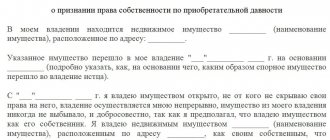Home » Division of property » Where to start a divorce with division of property
16
Usually, after the spouses decide to divorce, they immediately begin to divide everything that was purchased during the marriage. And here they often face problems. They cannot figure out where is personal property, where is joint property, what should be done for division in the first place, and what should not be done under any circumstances, how to draw up a statement of claim, what documents are needed for division. Questions grow like a snowball.
Main factors influencing the division of property
Nowadays, when divorce and division of property have long become commonplace, lawyers have developed certain algorithms for action in various circumstances that simplify this procedure. The division of marital property during a divorce depends on a number of factors:
- mutual consent or, conversely, disagreement of one of the spouses to divorce and division;
- terms of the marriage contract (if any);
- minor children;
- procedure for acquiring property;
- some other conditions.
The division of joint property can occur both during the divorce process and after it, when the dissolution of the marriage has already occurred. Both cases have their pros and cons.
In case of simultaneous divorce and division of property:
- The divorce process can drag on indefinitely - this is a minus.
- Former spouses will not have time to hide or sell part of the joint property in order to hide from division - this is a plus.
- Both processes take place in parallel, so the costs for lawyers and other legal costs are reduced - this is a plus.
When dividing property after the divorce process is completed:
- You can calmly start collecting documents and preparing for the division procedure - this is a plus.
- It is important not to miss the statute of limitations - this is a minus.
- Some unscrupulous spouses try (and sometimes they succeed) to sell (sell, donate) part of the joint property in order not to divide it; as a result, the second spouse remains deprived - this is a minus.
How is property divided during divorce?
In accordance with family law, all property acquired by spouses during marriage is considered joint and is subject to division equally. These are the so-called “ideal shares”.
But there are a number of circumstances in which the court deviates from equality of shares and determines the share of one of the spouses to be greater than the share of the other. Such an unequal division is possible in cases where:
- minor children remain with one of the spouses, and his financial situation leaves much to be desired, in which case his share may be larger;
- one of the spouses led an immoral lifestyle, spent joint funds to satisfy his unseemly needs (drank or lost money, spent it on drugs); in this case, the court may reduce his share.
The legislation defines two main ways of dividing joint property, depending on what legal regime they choose, these are:
- Legal regime for the division of joint property.
- Contractual regime.
Let's look at each of them.
Legal partition regime . Based on the legislative definition of equality of the parties, in which all joint property must be divided equally except for the personal property of each of them.
Contractual regime. Involves the conclusion of a marriage contract or a voluntary agreement on the division of joint property. In both the first and second documents, the spouses can deviate from the equality of the parties and determine what property and in what volume will go to one or another spouse after the divorce.
How is property divided during and after divorce?
Typically, spouses want to receive equal shares of what they acquired during their marriage. In court, division always occurs on the basis of the beginning of equality of shares by virtue of the direct instructions of the law (Article 39 of the Family Code). Even if the spouses’ incomes differ several times, there will be no advantages. In exceptional cases, the judge may transfer more to one of the parties if parasitism of one of the parties is proven, waste of property contrary to the interests of the family, or there are special interests of children.
But you can get more, for example, not 1/2 share, but 3/4 shares of the apartment, if it is proven in court that personal money or other property of one of the spouses (donated by parents, inherited, premarital savings, cash, received from the sale of non-marital property, etc.). If the property was purchased entirely with personal money, it is removed from the mass of the divisible.
It does not matter in whose name things and other property are registered or registered, they are automatically included in the common joint property of the spouses.
If there is mutual agreement, then it can be divided as the parties see fit, up to the transfer of everything to only one party - the spouse. See below for more information on the out-of-court section.
The acquired property is divided by establishing shared ownership of it, either by transferring different things of the same value to each, or by transferring items to one with payment of compensation to the other. Judges decide what to transfer and to whom, taking into account the established procedure for using things and the needs of the parties.
The property can be divided into parts - separately real estate, money, cars, etc. or all at once. You cannot divide into categories like “real estate for me in the Moscow region, and for you in Moscow.”
The division of property after divorce should take into account the following features
In a family household, very often different things have different legal regimes. It was indicated above that there is personal property that should not be divided and belongs personally only to one of the spouses. The household of the spouses may also include belongings of relatives and other strangers, personal belongings of children, borrowed and credit money. Or, on the contrary, matrimonial property may be held by other persons, for example, transferred for the use of parents, money transferred as a loan. This is not easy to understand, and to avoid such a situation, family law has introduced the rule that, until proven otherwise, all property used in the family is considered to be matrimonial. From this, for example, it follows that if someone claims that the property belongs to him personally or it belongs to his relatives, and the other denies this, the matter will have to be decided in court, and the judge will require the first to prove his statement, and the second will simply have to deny. This situation is called in the theory of family law the presumption of the regime of joint ownership.
Article 34 of the Family Code of the Russian Federation establishes a presumption of the emergence of a regime of joint ownership of spouses for property acquired during marriage; the obligation to prove the opposite and confirm the fact of acquisition of property during marriage at the expense of personal funds is assigned to the spouse claiming to have the property recognized as his personal property. Determination of the Judicial Collegium for Civil Cases of the Supreme Court of the Russian Federation dated September 19, 2021 N 18-КГ17-134
If the things are in the hands of third parties, the court will require evidence that you are the owner of the things, and not these persons. Hidden or lost property cannot be the subject of legal proceedings. But there is a common practice - searching for hidden property with the help of judicial requests and demands, for example, addressed to the tax inspectorate, traffic police, registrar.
INUSTA
Commercial property:
The property of spouses often includes commercial instruments - shares, bonds, shares in the authorized capital of an LLC, rights of claim from commercial transactions, etc. In the latter, the object of dispute is often cryptocurrency, websites and commercial pages on social networks. Working with this property requires, in addition to knowledge of family law, also skills in working with commercial law and the arbitration process. Tax authorities, arbitration courts, MAP, a number of other government agencies. bodies are specific regulators in the implementation of entrepreneurship.
Thus, interaction with the commercial property of spouses requires significantly greater competencies.
Each of the former spouses always acts in their own interests
Typically, the property interests of the parties after the termination of a marriage are opposite. This is reasonable and normal, because in the absence of family, everyone thinks only of themselves. One wants to divide everything equally, and the other does not want to divide or agrees to an unequal division; for one, a speedy division is beneficial, while for the other, on the contrary, delay is beneficial. Everyone has the right to care only about their own interests and benefits, and no one can punish for this.
The time frame for judicial division of property usually ranges from several months to a year . However, against the backdrop of restrictions in 2020-2021 introduced in connection with the coronavirus epidemic, the deadlines have increased sharply. When resolving property disputes out of court, the duration of the procedures is 1-2 months .
What property is divided, what property is not subject to division
Often, when dividing joint property, spouses have no idea what property can be divided and what property cannot be divided and make mistakes.
What is shared
If you look at judicial practice, it becomes clear that expensive property is most often divided:
- real estate;
- vehicles;
- luxuries;
- antiques.
It should be remembered that only joint property is subject to division, that is, only what was acquired by the spouses during marriage using joint funds.
What cannot be shared
The law determines that all personal property of spouses is not subject to division. What can be classified as personal property? This:
- all property acquired by each spouse before marriage;
- real estate, vehicles, other types of property purchased during marriage, but with the personal funds of the husband and wife;
- property received by one of the spouses as a gift or inherited;
- everyone’s personal belongings with the exception of expensive ones, for example, antique jewelry;
- property purchased for children, for example, a computer purchased for a child’s lessons or an expensive musical instrument purchased for his training.
Joint property during divorce
According to the Civil Code and the Family Code, joint property (joint property) means property acquired by a married couple during marriage, regardless of whether both spouses or only one of them earned money for the family budget.
In this case, it does not matter which spouse is the owner of this or that property, if the property was acquired (significantly improved) during marriage, it is considered joint.
What is considered common property
Joint ownership includes:
- the income of each spouse received during the marriage;
- pension, social and other payments, but only those that do not have a designated purpose;
- movable and immovable property acquired by the couple during their married life;
- income received as a result of business activities;
- shares in capital, shares, shares and other securities;
- dividends on shares and interest on bank deposits, but only if these shares or deposits are also joint property.
What property is considered personal?
The personal property of each spouse is:
- property acquired before marriage;
- property received by inheritance;
- present;
- things intended for individual use;
- intellectual property right.
At the same time, expensive items, even if they are used only by one of the spouses, are not considered personal. For example, an expensive antique necklace, unless it was inherited or given as a gift, will be considered joint property in the event of division, and not a personal item belonging only to the wife. At the same time, a simple piece of jewelry purchased with joint money will be recognized as personal.
Common property rights
Regardless of whether one of the spouses had income during the marital relationship or did not bring any money into the family “piggy bank,” he still has the right to part of the joint property upon division.
What is shared
During a divorce, only jointly acquired property can be divided, namely:
- real estate acquired during marriage;
- bank deposits, securities (except those held by spouses before marriage);
- other movable and immovable property.
In this case, it does not matter which spouse contributed and how much to the family budget; both have the rights to half of the joint property if they decide to divorce and divide it.
What cannot be divided
Personal property of spouses is not subject to division, namely:
- acquired before marriage;
- purchased with the personal funds of one of the spouses;
- received as a gift or inherited;
- personal belongings (except for particularly expensive property, such as antiques, ancient jewelry, etc.).
There is an exception to this rule: if personal property during the marriage was significantly improved by joint funds or personal money of the second spouse, it becomes joint property and is subject to division.
For example, a spouse had an apartment that she bought before marriage. But during the period of their marriage, at the expense of the husband’s personal funds, the living space was overhauled, and its value doubled. In this case, the property ceases to be personal property and is considered joint property.
Where to start a divorce with division of property
First, let's look at when is the best time to start the divorce and separation process.
When to start divorce and separation
As practice shows, as soon as the spouses realized that living together is becoming impossible, they need to begin the process of divorce and parallel division of joint property. The sooner you begin the divorce process and division, the greater the chance of retaining and subsequently receiving the property due to you.
The more time passes after separation, the less chances you have to prove that you are right - some documents are lost, receipts and checks are lost, witnesses forget some facts, morally unscrupulous spouses hide or sell joint property, transfer property to relatives or friends. There are often cases when it is not possible to return what was lost.
The second reason why you shouldn’t delay the division is that things, real estate or a vehicle wear out, age, and, accordingly, lose value.
The third reason is the statute of limitations. Of course, the legislation provides a certain time period for filing a claim for division (three years), but situations are different, you can miss this period, then division will be impossible.
Where to start a divorce with division
The process of divorce and separation begins, naturally, with the official dissolution of the marriage. There are three ways to get a divorce:
- At the registry office. Divorce is possible if the couple has no children or they are already adults. The application is submitted to the department where the couple registered the marriage or at the place of residence of either spouse.
- In the magistrate's court. Divorce is possible if there are no disputes about the place of residence of the children after the divorce, and the disputed property costs no more than fifty thousand rubles.
- In the district court. The court will not only dissolve the marriage, but will also decide which parent the children will remain with, and if a parallel claim is filed for the division of joint property, it will also divide the property.
Where to start a divorce in court
First you need to collect all the documents and evidence. You will need receipts, checks for goods, purchase and sale agreements. At this stage, the main task is to collect all the evidence of your contribution to the acquisition of the disputed property.
There are several nuances associated with the partition procedure:
- All property purchased by a married couple after marriage and before the actual termination of the marital relationship is considered joint property. If the spouses separated long before filing an application for divorce and during this time one of them acquired an expensive property, then he must prove that there was no life together during the period of its acquisition and the purchase was made with personal funds.
- If the wife did not work, manage the household, or take care of the children during the marriage, she does not lose the right to half of the joint property. An exception to this rule may be evidence that she led an antisocial lifestyle, did not take care of the children, or spent joint funds on her own needs to the detriment of the family.
- Those things that only one of the spouses used cannot be classified as joint property.
- Gifts that were intended separately for the husband or wife, even those received during the marriage, are considered personal property.
How is property divided during a divorce if the wife is the owner?
It makes no difference to whom the property purchased during marriage with joint funds was registered; it will still be considered joint. But this rule applies if the property was acquired and not inherited or donated. In this case, the possible options are:
- The property was gifted to his wife. The husband believes that the gift was for the family, and not separately for the wife. In this case, if he proves that the property was donated not to the wife personally, but to the two of them, then it is divided equally. Evidence of one or another type of donation can be testimony or a deed of gift.
- The wife inherited some property. She is the rightful owner and should not share it with anyone.
- The property was purchased during the marital relationship, but with the wife’s personal funds. Such property is not divided, but she must prove that her money was used for the purchase; statements from bank accounts opened before marriage, and a purchase and sale agreement for her personal property can help with this.
How to apply to court for divorce and division of property
So, it was not possible to agree on the division and a lawsuit is inevitable. The necessary documents and evidence have been collected, all that remains is:
- draw up a statement of claim;
- pay the fee;
- file a claim;
- take part in the trial.
Statement of claim
The document must be prepared in accordance with all requirements; the application must be written legally correctly and must not contain grammatical errors.
The statement of claim must contain the following information:
- Name and details of the court to which the claim is filed (with mandatory compliance with jurisdiction).
- Personal information about the parties to the process.
- Cost of claim.
- Information about the place and date of marriage.
- Information about all minor children or other incapacitated family members.
- A list of all objects that the plaintiff requests to be divided, indicating their value and a description of each of them.
- Plaintiff's claims. In this paragraph, the plaintiff describes what property and how he is asking to be divided.
- List of attached documents.
- Signature and date.
Required documents:
- Copies of the statement of claim according to the number of participants in the process.
- Copies of the parties’ passports and birth certificates of minor children.
- Marriage document.
- All title documents for joint ownership.
- Receipt for payment of state duty.
- Other documents that can help win the process.
Sample statement of claim
State duty
When filing a claim, the plaintiff is required to pay a state fee, the amount of which depends on the price of the claim. The state duty is calculated independently in accordance with Table 1.
Table 1. Calculation of the amount of state duty depending on the price of the claim
| Property value, rub. | Deduction from the amount, rub. | Constant, rub. | State duty (percentage of property value, %) | State duty limit, rub. |
| Up to 20,000 | — | — | 4 | Not less than 400 |
| 20 001—100 000 | 20,000 | 800 | 3 | — |
| 100 001—200 000 | 100,000 | 3,200 | 2 | — |
| 200 001—1 000 000 | 200,000 | 5,200 | 1 | — |
| Over 1,000,000 | 1,000,000 | 13,200 | 0.5 | No more than 60,000 |
How to seize property during a divorce
If the plaintiff has concerns that his opponent will dispose of the joint property in his favor before the division, he can petition the court to seize the joint property. such a step is necessary to implement an interim measure to preserve the disputed property.
The petition is made either when filing a statement of claim, or already in court proceedings. If the court considers the grounds for seizure of property to be significant and there are conditions for seizure, then the court will grant the plaintiff’s request.
Important. Without a petition from either party, the court does not have the right, on its own initiative, to apply interim measures to preserve the disputed property.
Arbitrage practice
Judicial practice has enough examples of various options for the judicial division of joint property. Below is one such example.
Circumstances of the case . Kirill O. bought an apartment before marriage. Immediately after the wedding, his wife Natalya O. decided to renovate the living space, purchased the necessary building materials from her personal funds and hired a construction team. In addition to personal funds, joint money earned by the couple during their marriage was also spent on repairs, but the joint contribution was small. Two years later, the couple divorced, and Kmirill issued a deed of gift for the apartment in his brother’s name.
Plaintiff's claims . Since Kirill did not recognize Natalya’s right to residential premises, she was forced to file a claim in court demanding:
- Recognize the living space as jointly owned. Natalya motivated this demand by the fact that thanks to her efforts, the apartment was significantly improved and its price increased.
- Recognize her right to own half of the living space.
- Invalidate the apartment donation agreement, since it was concluded for the purpose of concealing the property from division.
Natalya attached to her claim receipts, checks and estimate documentation, as well as bank statements that confirmed the materiality of her expenses.
Kirill took the opposite position and did not agree with any of Natalia’s demands. At the trial, he stated that the living space was his personal property, since it was purchased before marriage. He also stated that he did not consider the improvement of the apartment significant, especially since his funds were also spent on repairs. As for the deed of gift, he has the right to dispose of his property as he wants.
The court ordered an independent examination, which concluded that the cost of the residential premises after reconstruction increased, but not significantly.
Kirill could not prove that he spent personal funds on repairs, but Natalya was able to provide all the evidence of her expenses.
The court's decision . Having considered all the materials of the case, the court ruled:
- The property cannot be considered jointly owned, since the defendant acquired it before marriage.
- The court refuses to recognize the plaintiff's ownership of half of the living space.
- The court refuses to recognize the gift agreement as invalid.
- The defendant is obliged to reimburse the plaintiff for the funds spent on repairs to the residential premises.
Where to start the divorce process and division of property, what steps to take first, which ones you can wait for - these are only a small part of the questions asked by married couples who have decided to divorce.
The resolution of family disputes often depends on knowledge of all legislative nuances and the ability to convey one’s position to the court. An ordinary citizen, inexperienced in jurisprudence, is unlikely to be able to comply with all the rules and regulations; he will need legal support both at the stage of preparing a lawsuit and at the court hearing.
If you are not confident in your abilities and doubt that you can win a legal dispute on your own, contact a competent lawyer and entrust the process to professionals.
FREE CONSULTATIONS are available for you! If you want to solve exactly your problem, then
:
- describe your situation to a lawyer in an online chat;
- write a question in the form below;
- call Moscow and Moscow region
- call St. Petersburg and region
Save or share the link on social networks
- FREE for a lawyer!
Write your question, our lawyer will prepare an answer for FREE and call you back in 5 minutes.
By submitting data you agree to the Consent to PD processing, PD Processing Policy and User Agreement
Useful information on the topic
3
State duty when dividing an apartment
Settlement of property disputes in court, like many other state...
14
How is a car divided in a divorce?
After a divorce, only the property that was purchased can be divided...
4
Division of debts and loans of spouses during divorce
Loans have long been firmly established in the everyday life of Russians...
11
Division of property without a will
With the help of a will, you can avoid any controversial situations regarding property...
13
Division of an apartment in case of divorce with children
If family relationships are broken and the only way out is divorce, before...
23
Agreement on the division of property of spouses during and after divorce
Concluding an agreement on the division of jointly acquired property between spouses, as...
How is property divided during a divorce if the husband is the owner?
The same rule applies as with the owner-wife.
Some husbands, if the wife does not work but takes care of the house and family, believe that the property purchased in such a marriage belongs only to him, since he alone brought income to the family. This opinion is incorrect; in any case, all property acquired during marriage is joint and should be divided equally.
When dividing any joint property, there are so many nuances and pitfalls that it is difficult for an ordinary citizen to understand all the legal intricacies. Competent and experienced lawyers will come to your aid, who will conduct an initial consultation, suggest an algorithm of actions, help, if necessary, collect the necessary evidence, and, if necessary, represent your interests in court.
FREE CONSULTATIONS are available for you! If you want to solve exactly your problem, then
:
- describe your situation to a lawyer in an online chat;
- write a question in the form below;
- call Moscow and Moscow region
- call St. Petersburg and region
Save or share the link on social networks
- FREE for a lawyer!
Write your question, our lawyer will prepare an answer for FREE and call you back in 5 minutes.
By submitting data you agree to the Consent to PD processing, PD Processing Policy and User Agreement
Useful information on the topic
5
Statement of claim for divorce and division of property
If, upon divorce, the former spouses cannot agree on...
3
Statement of claim section of mortgage apartment
Divorce almost always means some kind of legal problem related to the division...
3
How to properly divide a non-privatized apartment between relatives
Non-privatized housing is not subject to direct division, since it is not...
How to divide a one-room apartment during a divorce
The division of a one-room apartment during a divorce can be voluntary or forced...
39
Registration of a car by inheritance after the death of the owner
A car is also property subject to inheritance. As in…
3
Division of business, LLC in case of divorce between spouses
Upon divorce, each of the former spouses is interested in fair...








